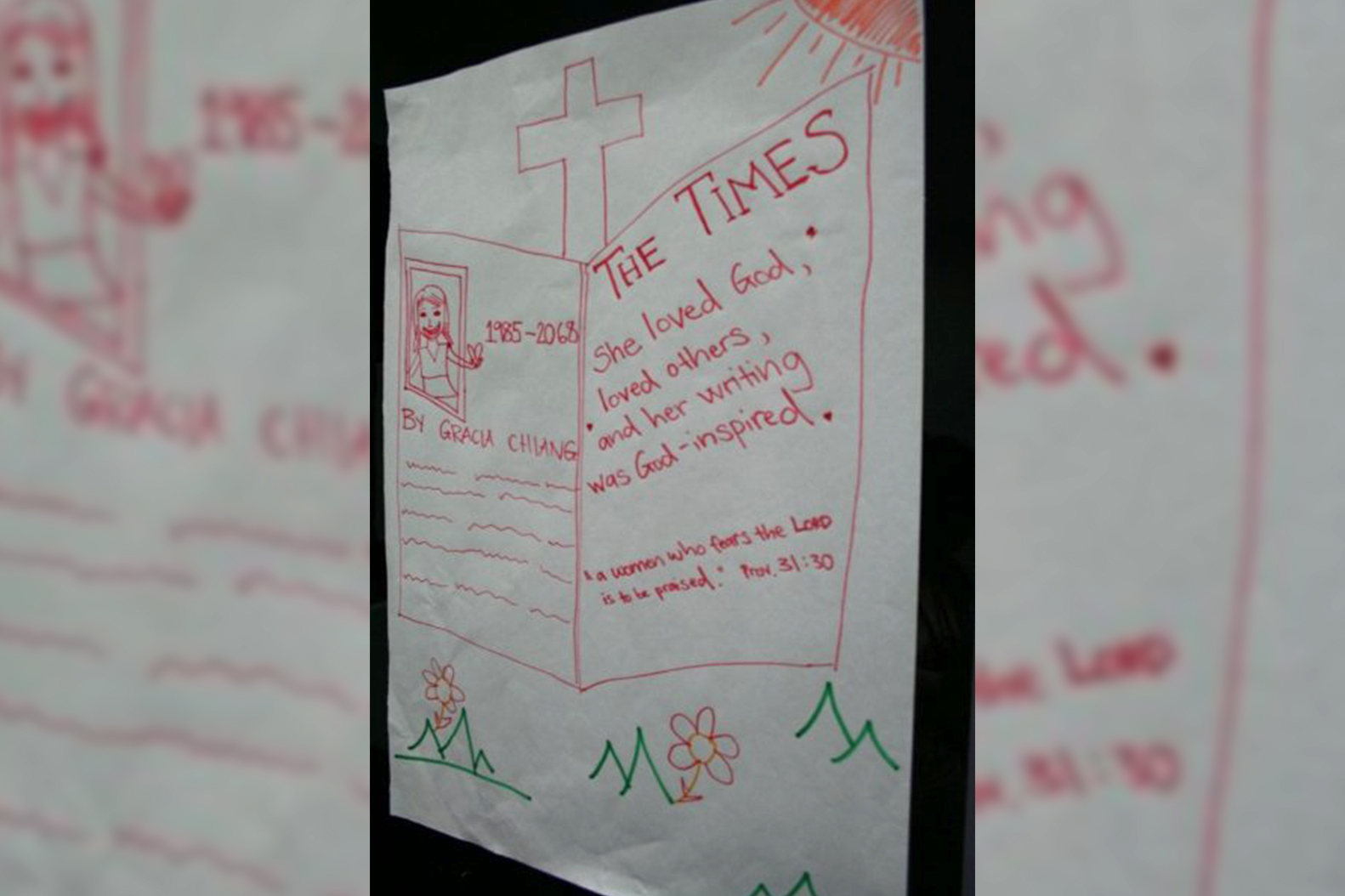My heart was stirred when it was revealed that the late Singaporean actor Aloysius Pang used to set aside 10 per cent of his pay to thank his production crew for their hard work.
During her eulogy at the 28-year-old’s wake, celebrity Felicia Chin also recounted how Aloysius had arranged for 8 to 10 sets of portable fans to be bought for the crew during an outdoor shoot.
There were other anecdotes of his kindness and thoughtfulness.
He loved not only in word but in deed.
Veteran artistes Hong Hui Fang and Chen Shu Cheng recalled how they were once were filming together in Bintan and many of them were sunburnt after a day’s work. Quietly, Aloysius went to a nearby store and bought up all their tubes of aloe vera gel and hung one on each of their hotel room doors.
“I later learnt that he used his overseas allowance to buy all these for the cast and crew. I was moved,” said Chen.
“He would always go the extra mile to bring happiness to those around him,” added actress Carrie Wong, even making the effort to buy drinks and chat with special needs children whom he forged a bond with while shooting for a drama within a hospital.
One fan even shared that he would tell his fans not to spend so much time supporting him, especially those who were students.
As we mourn the loss of Aloysius, we remember the legacy he has left behind: His legacy of love.
LOVE, THE COMMITMENT NEEDED
Aloysius left such an impact on so many who knew him not because of his acting chops and boyish good looks, but because he loved. His production crew felt appreciated, his fans felt cared for, his fellow cast members felt moved.
I am reminded by how love can make a person feel. You might have heard the quote: People might forget what you said — but they will never forget how you made them feel.
From the many eulogies delivered, it was evident that this young man had a huge heart for people, and he loved not only in word but in deed.
Love is as much a question of the will as it is an emotion.
He put his money where his mouth was, even to the extent of giving away a tenth of what he earned every month. It might not have been a huge sum, but such a commitment shows what he valued.
Hearing these stories about how Aloysius stopped to care for the people around him makes me reflect on whether I have been just as intentional with acts of love.
I know I can be quite a task-oriented person when it comes to work, sometimes focusing too intently on the goal and neglecting the people around me.
But more than that, perhaps the act of loving others itself is so difficult because many times it just feels counter-intuitive. Loving ourselves and fulfilling our own needs is easy, but loving someone like ourselves? Wow.
LOVE, THE SACRIFICE NEEDED
Love is as much a question of the will as it is an emotion.
To be honest, I wouldn’t be able to do this on my own. Loving others is often inconvenient and requires a certain degree of sacrifice.
This would only be possible because God’s love has been poured into my heart through the Holy Spirit (Romans 5:5).
This abundant and overflowing love I have first received is the source of my love. Loving others has a certain element of dying to self, and there’s no better example of this than Jesus Christ himself.
“God demonstrates his own love for us in this: While we were still sinners, Christ died for us.” (Romans 5:8)
As Christians, our source of love is God. And we, too, know how love is very much on the heart of our Father.
“Let no debt remain outstanding, except the continuing debt to love one another, for whoever loves others has fulfilled the law. The commandments, ‘You shall not commit adultery,’ ‘You shall not murder,’ ‘You shall not steal,’ ‘You shall not covet, and whatever other command there may be, are summed up in this one command: ‘Love your neighbour as yourself.’” (Romans 13:8-9)
Right after this exhortation, Apostle Paul, the writer of Romans, goes on to say:
“And do this, understanding the present time: The hour has already come for you to wake up from your slumber, because our salvation is nearer now than when we first believed.” (Romans 13:11)
So besides giving us the commandment to love, there’s a certain urgency by which we ought to love. For we know not how long more we’ll be on earth.
We often assume that something can wait, but the truth is we don’t know when our time here is up. As we’ve seen repeatedly, death can catch us by surprise.
LOVE, THE URGENCY NEEDED
Many years ago, my youth leader took a group of us on a field trip. We were all eager to get to our destination – until we found out that we were going to a cemetery.
It was a sombre afternoon, walking among the rows of graves, pausing to read the inscriptions on their headstones, imagining what their lives were like or how they died. Many lived a ripe old age, but many were young. There were even babies.
After returning from that “excursion”, we were required to think about how our own tombstone would look like.

I drew a picture of a book/newspaper and wrote: She loved God, loved others, and her writing was God-inspired.
I also included this verse from the Bible: “A woman who fears the Lord is to be praised.” (Prov 31:30b)
We ended off the session by taking photos with our “tombstones”.
I was barely an adult then, but the memory of the day left a deep impact. Written with death in mind, this was my life statement.
It was not only what I wanted people to remember me by, but a reminder for my daily living while I’m still here.
Aloysius was remembered for his love towards others – and less about the shows he acted in or the achievements he chalked up.
What do you want to be remembered for?
Thank you Aloysius for serving the nation and for loving the people around you.
You have reminded me of just how important it is to love not just in speech but in action, to love even when it’s costly, and to make our short lives on this earth count. We have lost a bright young star indeed.









